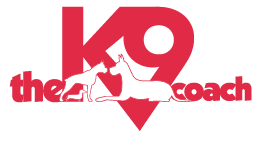Socialization Outings
Socializing Your Dog
Socialization... it's probably not what you think it is.
Dogs go through a critical period of development that lasts roughly from 3 weeks-16 weeks of age. During this time, they're forming ideas and opinions about the world around them; good and bad.
They're developing social bonds and learning how their behavior impacts other living creatures.
A dog that has a quality socialization program is one that will reach its fullest potential.
Socialization is about giving them the tools and outlook on life to navigate through our society with minimal stress to themselves and others... now to my point.
If your entire plan for socializing your puppy is taking it to puppy classes, puppy play parties or the dog beach, you are GOING to have problems. Unfortunately, the idea that puppy-puppy or puppy-dog interactions constitute 'socialization' has been continually force fed to well-meaning, but misinformed pet professionals and pet parents.
Either two things will come of such a plan...
1. Your puppy meets the wrong dog and the interaction goes poorly, even terrible. Bad experiences are just as bad as no experiences. A bad experience during the critical period can result in a negative imprint leading to fear, insecurity, reluctance, reactivity, and aggression. Both you and the dog will imprint a feeling about the bad experiences and carry that forward to the next one.
2. Your dog has a positive experience. And that positive experience creates a positive imprint for fun with other dogs. And their positive experience now takes precedence over YOU.
Issues associated with repetitive positive ex[eriences in everyone you meet is creating problems in your dog's behavior.
Anticipation / Expectation
Inconsistent Recalls / Inability to Recall Off Distractions
Poor Leash Walking Skills
Excitement & Over Arousal / Desire to Greet Everyone they see
Reactivity (sometimes becoming aggression)
Just to name a few. Most owners see each of these as a unique problem. Or a symptom of "he's fine until he sees xxxx". When in fact, it's just different symptoms of the core issue. Your dog doesn't respect you as a capable confident leader who gets to choose who to greet and who not to, and doesn't listen to you under distraction or when they think everyone else wants to play with them.
A poorly structured socialization program can result in a greater value in other dogs & people -- and relatively little in YOU when are out in public.
This is why not only working your obedience skills in public in public for duration, under distraction, and at distance from you is critically important.
But it's also important that you offer to your dog engagement, fun, and activities that make you more important & more meaningful to your dog that the excitement of the world around you.
You can't build that if you're on the phone while walking your dog. Of if your dog plays at the park while you read or watch tictok. Of you don't do things that are fun, mentally engaging, and rewarding WITH Your dog.
Good socialization with others also includes an off switch. An ability to not get excited by other dogs and other people. Meaning sometimes we do NOT get to say hi to our favorite neighbor lady that always has treats. Or sometimes we don't get to go say hi to our doggy BFF. Sometimes we go to the park and just sit to watch the world go by.
As you're doing these things your dog's reward is a payout from you -- might be a food reward, a game of fetch at the end of the training, or just the joy of playing with you.
Create Yourself as the reward and the best part of the outings. Getting to say hi to another friend sometimes is just a bonus.
(text adapted from abik9 training post -- such a good reminder for all)

